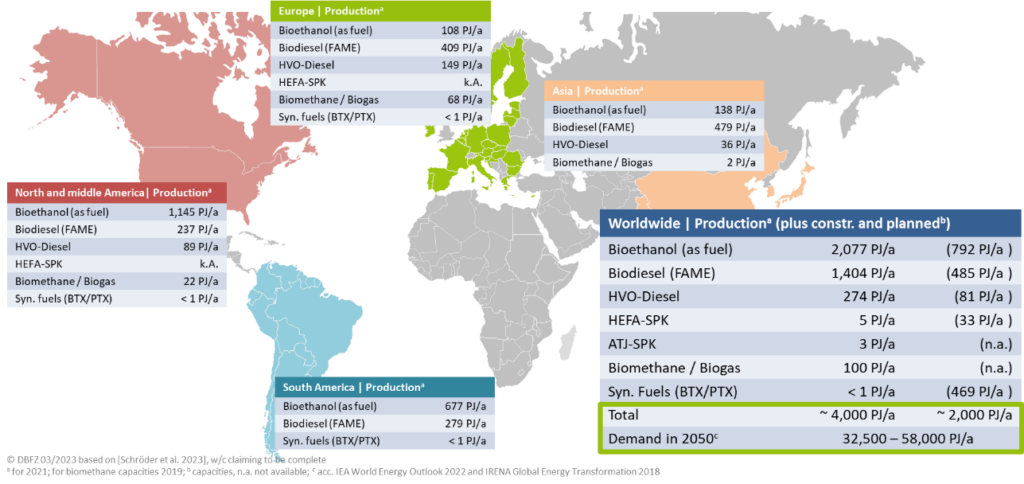Assessment of successes and lessons learned for biofuels deployment: Synopsis
The IEA Bioenergy project “Lessons learned biofuels” examined the technical, economic, societal and political reasons underlying the past and ongoing booms and busts cycles of biofuel technologies development, demonstration, deployment and replication. The aim was to identify key factors for technology successes and the best policy framework conditions as well as the measures for stimulating increased future markets for production and consumption of sustainable liquid transport biofuels.
The work was carried out from 2020 to 2023 in a collaboration between three IEA Bioenergy Tasks: Task 39 “Biofuels”, Task 40 “Deployment” and Task 45 “Sustainability”.
Synopsis report with a synthesis of key issues
The project’s high level key messages include:
- Combine market pull with technology push: Ambitious strategies and targets do not automatically create a frame that allows increasing or building up innovative technologies along the well-to-wheel/wake chain. The case studies for advanced biofuels have shown technical success, however this doesn’t guarantee the required commercial success. To achieve this, harmonized technology-push and market-pull policies and a comprehensive monitoring of their impacts are necessary as well. This also includes steering instruments to secure financing in order to lower the risk of investments and plant operation.
- Allow for learning and improvement: Decarbonization/defossilization of the transport sector needs a transition process that allows starting with promising technology options, allows gaining experience and learning lessons for continuous improvement. We don´t have time to wait for optimized options that might check all the boxes from the very beginning.
- Improve established biofuel options AND support innovative biofuel solutions: It is necessary to continuously work on harmonized clear long-term policies that allow improvement of established biofuel options as ground base for decarbonization in transport. At the same time R&D&D on innovations of advanced biofuels including hybrids with other renewables that are more complex and thus (usually) more cost demanding (e.g. with regard to GHG mitigation) is urgently needed for a sustainable carbon neutral world.
To stimulate biofuels development actions are needed in the field of:
- Resource mobilization: Biomass crops, with positive impact on soil quality and soil carbon, including improvement of degraded land; mobilize residues and organic waste
- Resource logistics: technologies and infrastructure (including regional hubs) for efficient and timely mobilization of resources
- Biofuel production technologies: feasibility studies, capacity building, research and innovation, financing mechanisms
- Infrastructure and trade: broaden the fuel portfolio
- Appropriate norms and standards for innovative technologies

Figure: Conventional bioethanol and biodiesel (FAME) are currently the renewable fuels with the highest production amounts worldwide followed by a rapidly growing market for HVO/HEFA and to a minor share biomethane/biogas. The total current biofuels production of about 4 EJ, together with fuel capacities planned and under construction of about 2 EJ, needs to be multiplied by a factor of 5 to 10 to meet the required demand of renewable fuels (biofuels and e-fuels) worldwide by 2050.
The underlying work package reports are available here:
- Status of biofuels policies and market deployment in Brazil, Canada, Germany, Sweden and the United States
- Meta-analysis of existing studies
- Case studies of advanced biofuel technologies
- Sustainable biomass supply chains for international markets
The results of the project were presented in a seminar in Gothenburg, Sweden on 21 September 2023. Slides and recordings are available here.


